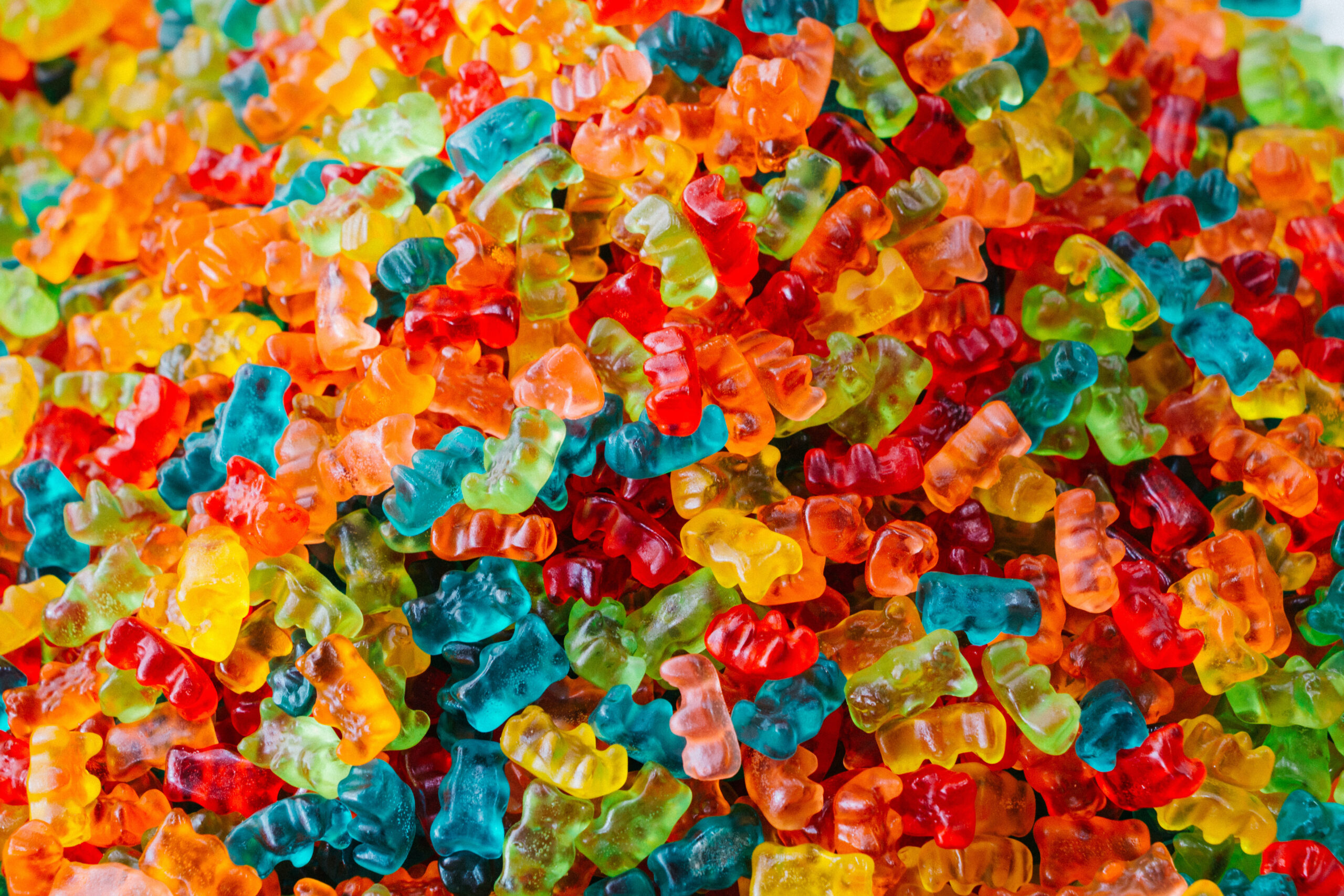
The Effects Gummies Have on Your Teeth
Gummy candy is enjoyed all over the world in many different sizes, shapes, and flavors. These sweet, chewy, and gelatinous treats can be highly addicting and most people can’t stop at just one. While gummies are generally not harmful when consumed in small amounts on occasion, they can have a negative impact on your teeth if eaten frequently. Here’s a look at some of the effects that gummies can have on your teeth, as well as some healthy alternatives.
How Gummies Affect Dental Health
Bacteria go immediately to work when you place a gummy candy in your mouth. The bacteria in the mouth combine with the sugars in the candy which turns the sugars into an acidic form. This acid eats away at the protective enamel on the teeth, a process referred to as demineralization. Without a stringent brushing and flossing routine to remove plaque and neutralize the acids in the mouth, cavities can develop.
Gummy candies are also known to be very sticky and often cling to the surfaces of the teeth. Whenever any type of food sticks to the teeth, it prevents saliva from making contact with the tooth surface, essentially creating an acidic pocket between the tooth and the food particles. The longer the acids are allowed to remain on the teeth, the more damage they cause. Sticky foods like gummies actually speed up the breakdown of tooth enamel.
In addition to tooth decay, frequent consumption of gummies can also have other negative effects on your oral health. As the enamel on your teeth gradually wears away due to harmful acid production, the teeth become more brittle and susceptible to damage. Teeth with minimal enamel are at a much higher risk of developing chips and cracks.
Worn down enamel can also make the teeth extremely sensitive to hot and cold. If you have dental restorations, such as fillings or crowns, a sticky gummy could actually pull them loose. This can result in costly dental work. This doesn’t just pertain to traditional sugary gummy bears. Even some gummy vitamins, which are supposed to be good for you, contain high amounts of sugar compared to regular multi-vitamins.
Better Candy Options for Your Teeth
Today, most candies contain large amounts of added sugar, yet add little to no added nutrients. Ideally, you should keep your candy intake to a minimum to avoid the ill effects of a high-sugar diet. According to the American Heart Association (AHA), men should consume a maximum of 37.5 grams (9 teaspoons) of added sugars per day, while women should consume a maximum of 25 grams (6 teaspoons).
When choosing a candy to snack on, consider alternatives to sticky gummies. While all candy should be eaten in moderation, the following options are some of the best for dental health:
- Sugarless Gum – As the name suggests, sugar-free gum is simply gum that does not contain sugar. Instead, the flavor is created using non-cavity sweeteners like xylitol, mannitol, and sorbitol. Chewing sugarless gum also increases saliva flow which helps to wash away food and other debris in the mouth.
- Sugarless Candies – Today, you can find countless sugar-free candies on the market, from peanut butter cups and peppermint patties to butterscotch and other hard candies. Like sugar-free gum, sugarless candies are made with non-cavity sweeteners. These are less likely to harm your teeth.
- Dark Chocolate – Unlike milk chocolate that contains large amounts of sugar that can contribute to cavities, dark chocolate contains antioxidants. Antioxidants have been shown to ward against decay and periodontal disease, while still satisfying your sweet tooth.
- Candy Bars with Nuts – Chocolate bars, particularly dark chocolate bars, containing nuts can also be a great occasional treat. The nuts help to break up the stickiness, as well as the biofilm that develops on the teeth. Nuts also contain large amounts of healthy protein and fiber.
Speak to a Melbourne, FL Dentist
Want to learn more about the effects of gummies on your teeth, or need to schedule a dental teeth cleaning? Reach out to our Melbourne, Florida dentist at Artistic Touch Dentistry today.

